Andy Coulson Saves Cameron's Blushes at the Leveson Inquiry
Live updates as former communications director for David Cameron gives evidence at the inquiry into press ethics.
- Former NotW editor had £40,000 News Corp stock while Tory spin doctor
- Coulson received News International resignation payments while working for Conservatives.
- Accessed secret meetings and documents despite insufficient vetting for his role.
- Robert Jay QC suggests Rupert Murdoch had "selective amnesia" around meeting with Thatcher in 1981.
- Independent on Sunday editor John Mullin summoned after publishing article based on Coulson's witness statement.
- Proprietor of Daily Mail admits sending text messages to David Cameron and Nick Clegg for "Job Well Done"
- Claims politicians will ask for help but "I do not get involved in matters of opinion"
16:35: Coulson has finished giving his evidence and the inquiry has finished for the day.
Despite revelations over Coulson's access to secret documents and the fact that he held £40,000 of News Corporation stock while working for the Tory party, it appears there will be sighs of relief in Cameron's camp following the day's evidence.
Coulson played his cards as close to his chest as Jay would allow with his subtle, teasing technique of questioning, falling back on the response of "I don't recall" during some of the most contentious topics.
Having had a foot in both the press and political camps, Coulson represented a good opportunity to peel back the layers of relationships and back scratching between the two but he proved as elusive as the answers to the big questions the inquiry hopes to answer.
Cameron's next big test will come tomorrow, when Rebekah Brooks comes to the inquiry. IBTimes UK will cover the events live.
See you there.
16:29: When asked by Leveson whether he believed politcians were too close with the media, Coulson said he would not disagree with Cameron's comment that it had become too close.
However he added that "people are disengaging from politics" and pleaded that the inquiry did not "put up more barriers in front of what is already a difficult process."
Leveson replied that he is very keen on ensuring that politicians and the media can fulfill their roles. "The question is how to ensure that happens in an open, transparent and appropriate way," he added.
He added that recent events may increase the transparency shown by politicians on their relationship with the media.
16:24: Coulson asks to address the concept that there was some sort of secret deal between the Conservatives and News Corp with regard to the BskyB bid.
He said: "If there was a deal and if there was a conspiracy, why was Vince Cable given the job?"
"It is the prime minister's gift to discuss who held which brief and so if there was this conspiracy that David Cameron was going to somehow return the favour to News International, why on Earth did he give the job to - and I choose my words wisely - a combative member of the Liberal democrat party?"
16:11: When Jay asks whether there is too much consideration given to the press treatment of politics and if this is a cause for concern, Coulson replies: "I don't think that it's a significant problem. I think that political parties have to fight hard to get their message across and I think there's a personality aspect in politcis that's probably increased over the years."
He said that he was "confident" that he did not discuss his resignation with Rebekah Brooks until after he had formally resigned.
"I have been trying to piece together events - as I am sure you will undrstadn it woudl a difficult period for me," he added.
16:05: Jay asks whether there is any system at Downing Street with regard to people coming in through the back door rather than the front.
Coulson: "I don't thinkso. There's a car park at the back door, so it's a bit easier."
15:59: Coulson said he has had several conversations with News Corporation's Fred Michel, but does not recall any conversations about the BSkyB bid.
He said that he did not recall any conversations with Brooks or with Jeremy Hunt concerning the bid.
When asked by Leveson whether there were any conversationsw ith politcians about the bid, he responded : "Not that I remember".
15:47: Coulson is discussing The Sun's endorsement of the Conservative party.
Jay suggests that the endorsement was the specific prize that Coulson had been hired to secure. Coulson disagrees.
Although he described the endorsement as a "good day in the office", he said he would have been happier with a more pro-Tory angle rather than anti Labour, and for the endorsement to have come during the Conservative conference.
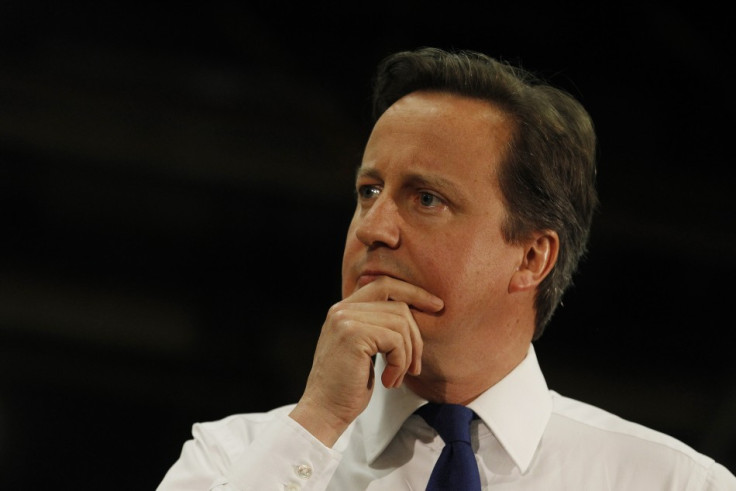
15:39: The conversation has turned to Cameron's relationship with Rupert Murdoch and Coulson's hand in News of the World's support for the 2010 election.
Coulson said he didn't recall a "specific converstaion" about an endorsement, claiming it was about a "broad range of relationships".
Speaking about Cameron's private flight to meet Murdoch on his yacht in Santorini in 2008, he said he was not involved in the logistics.
" I didn't regard it as a key moment. I would have seen it as an opportunity for David Cameron to put himself and his party in the best possible light."
15:27: Coulson has admitted, as Downing Street had earlier hinted, that his position gave him access to secret meetings, despite not having sufficient security clearance.
He has also confirmed that he owned resticted stock units in News Corporation while working for the Tories. He said he had calculated the gross value of the RSUs to be around £40,000.
When asked why he did not consider this issue while working for the Conservatives, he said: "This is by way of explanation, not an excuse. My job in opposition was a busy one and my job in government was busier still and I did not take the time to pay close attention to my own circumstances in this regard and I should have done."
15:23: Coulson's witness statement can be accessed in full on the Leveson Inquiry website.
15:13: Jay brings up Cameron's comment made in 2011 that "we all got too close to News International".
He asked Coulson: "Did [Cameron] ever express disgruntlement that he spent so much time talking to journalists and reporters?"
Coulson answered: "Frequently" but said that he did not recall Cameron having expressed concerns over becoming too close with a particular news group.
"I look at it as to whether there was an inappropriate conversation of a deal done, which is part of this idea of a great conspiracy that sits over this idea. I never saw a converstion or was party to a conversation that was inappropriate in that way."
15:03: Coulson said his friendship with Brooks may have been a factor, but chose to describe her as a "strong" character, rather than Jay's description of her as "powerful".
He said that News International papers were not his sole aim when it came to garnering Conservative support, despite having told Cameron that News of the World editor Colin Myler's support was less likely as he was more left-leaning.
"There were a number of other newspapers that we needed to work hard to gain their support, regardless of circulation," he said.
"I put effort into the trying to secure the support of The Sun. I did the same for tha Daily Mail, and I put a lot of work into the Daily Telegraph and other papers too."
He stressed that newspapers were not the only focus.
"Television was fundamentrally important to us and we were clear about that from the start," he added. Leveson responded that television channels would be impartial, while newspapers would not.
Coulson said Brooks's support would not be sufficient as the Conservatives had a "political mountain to climb of epic proportions."
14:49: Jay continues to press Coulson as to why he was chosen for the job.
"This is a turn from 17-18 years of a career. You have ended up as the editor of the biggest circulation paper in the country and then you are asked to do something completely different," he said, before asking if Osborne wondered why he were chosen.
Coulson replied: "Well I had been the editor of a national newspaper for a number of years. That involved politics as we have discussed. I was dealing with issues, I ran campaigns, I was - I hope - in touch with a readership on a number of issues and those things I'm sure were attractive.
"If I may say, the route from journalism to politics - I was hardly a pioneer."
When asked if his position with News International was mentioned, he said it would have been a factor, but that he could not comment on Osborne's thoughts.
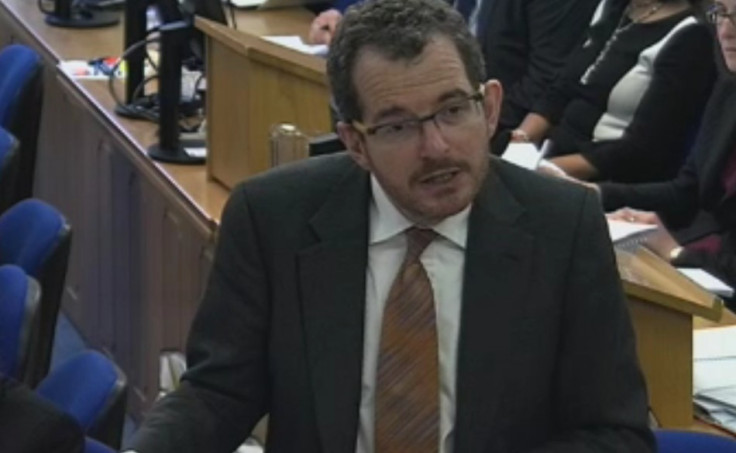
14:41: Coulson said he had shares in News International, which he sold immediately upon leaving. He also had shares in News Corp.
He was approached by George Osborne in 2007 to take on a position with the Conservatives.
14:40: Coulson's resignation and ensuing payments, two of which would come after he started work for the Conservatives, are now under scrutiny.
14:34: The conversation has turned to a 2005 News of the World story on George Osborne with the title "Top Tory Coke and the Hooker".
Jay said that Coulson's leader appeared to be going easy on Osborne. Coulson said that it would be ridiculous that a leader would be thought to have more impact than a front page splash.
"If you are looking for a time when we were favourable to the Conservative oparty, with the greatest of respect, this is a pretty poor example.
"As I look at this front page all I can think is that if we did not have a DVD promotion on this story would be double the size," he said.
When asked by Jay if the NotW would have spiked the story if the Mirror was not going to splash it, he said "no, certainly not".
14:24: Jay asks whether David Cameron was his first choice for the leadership of the Conservative party.
Coulson said he had looked at the paper during the time and believed the paper showed no preference, but that columnist William Hague showed support for Cameron.
"I think we said it's his to lose at one point, but I don't think it went any further," he said. " We certainly weren't against him."
He said that the paper's "Hug a hoodie" coverage would not have helped Cameron.
14:18: Coulson agrees that his relationship with Murdoch was "warm", but said he would not want to overstate a personal relationship.
"He was supportive to me as an editor and I thoroughly enjoyed working in his company," he added.
When asked whether he turned down the editorship of the Daily Mirror, following the departshire of Piers Morgan, he said: "There were conversations towards the possibility of me becoming editor of the Daily Mirror and I chose not to do so."
14:13: Jay appears to be starting off quite general, asking Coulson about his position with regard to Rupert Murdoch.
Coulson, admits that the two would talk about the "issues of the day", but repeatedly turned the focus to conversations about sport, which Jay claims is an attempt for "neutral ground".
Coulson certainly appears cagey at the moment. Jay will not have an easy afternoon.
14:08: Jay opens questioning by asking Coulson about his relationsghip with Rebekah Brooks.
Coulson said the two would regularly speak, but have not had contact for some time "for obvious reasons".
He said that he was not aware of her political leanings except for the odd conversation, but admitted that she was "close" with politicians through her work.
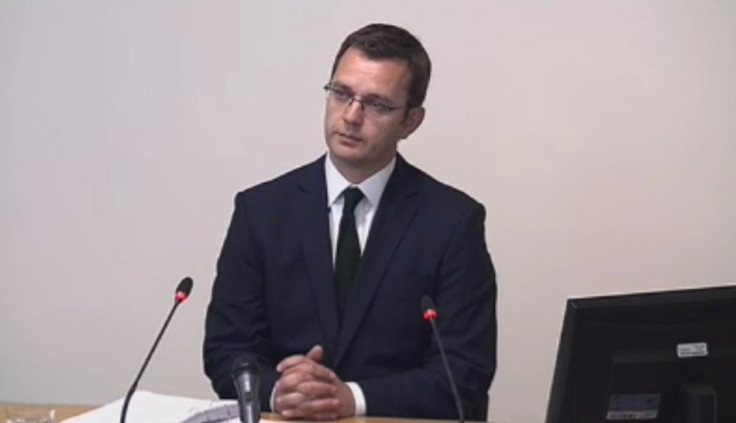
14:03: Coulson has taken his seat and Jay has begun questioning.
13:00: The inquiry breaks for lunch.
12:57: Mullin denies that he published the story as it was "just too good a scoop".
"If we were that excited about it we would've put it on the front page," he said.
He argued that it was defensible to put the issue of "who knew what and when" in the public conscience before Coulson gave evidence.
"I do apologise for the trouble that this has caused the inquiry and for the effort that you have gone through today," he said. "It wasn't our intention. We are motivated by trying to get to the bottom of this issue as is the inquiry."
Leveson thanked him for coming, even though he was legally obligated to do so.
12:50: Counsel David Barr claims there is no public interest in publishing a story that will be made public four days later in a "proper and orderly way".
Mullin: "I don't know how it would be in the inquiry".
Barr said Mullin's answer was "nonsense" as he knew the information was contained in the witness statement.
12:48: Leveson has taken issue with Mullin's assertion that the story came from "good honest journalism", as "someone broke a confidentiality agreement".
"You've created a dialogue in public, with questions being asked and allegations being made, before we've even heard it."
Mullin repeated that the story was a "matter of massive public interest" and that the paper had used "nothing" from the statement in its story.
12:45: Mullin remains defiant that the Independent on Sunday had the details of the story, which centres around Coulson having shares in BSkyB while while Cameron's director of communications, from three sources before seeing the statement, which he did not use in the story directly.
12:42: Mullin is keeping his comments brief. When asked why he looked at the statement despite being aware that he shouldn't, he said: "I think that it's human nature that if you are presented with something like that as a journalist you would read that.
"In retrospect It would be better all round you would read it."
12:37: Mullin is being taken through the restrictions on the use of witness statements, afterhe confirmed he was directly involved in the decision to publish the story.
Mullin has confirmed he was aware of all restrictions and said that no form of subterfuge was used to gain access to the witness statement.
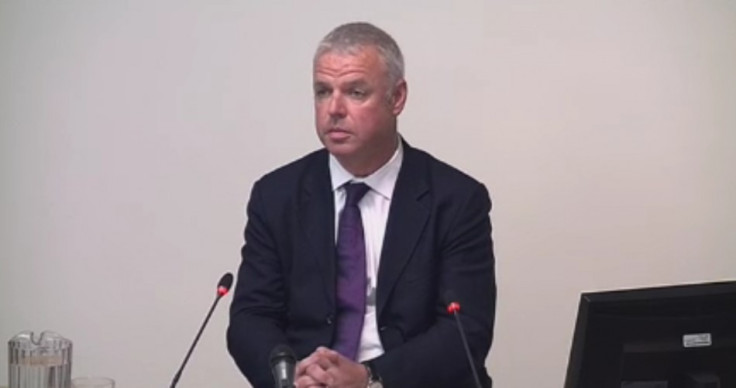
12:33: Independent on Sunday editor John Mullin now comes to the inquiry, having been summoned with regard to an article published based on Andy Coulson's witness statement.
12:23: In reference to the News Corp / BSykB bid, Jay is explaining the issues around the terms of reference of the inquiry.
Jay said the case of Hunt and News Corp would represent a "mirocosm" of the relationships between the media and press.
Hunt, who maintains that he did not break the ministerial code, and has the support of his prime minister, will be keen to put his point forward when he comes to the inquiry.
12:15: Surprisingly, Jay has made reference to Rupert Murdoch having suffered "selective amnesia" with regard to meetings with then prime minister Margaret Thatcher in 1981, which Murdoch discussed with him while giving evidence to the inquiry.
He said that if a person was to accept Murdoch's evidence, the point would go no further, but that otherwise the consequences are "wide ranging".
Guardian editor Alan Rusbridger tweeted: "Jay suggests Rupert Murdoch has "selective amnesia" about his lunch w Thatcher in 1981. Cd bear on his integrity".
12:07: Jay claims the press's relationship with politicians can become unhealthy if the journalists seek to "make the news rather than report it", which can cause the public to be misled.
12:00: Jay is talking about the coming module.
He said: "The fearlessness and vibrancy of our press is something that we must be enormously proud and something we not take for granted".
He adds that the module will focus whether the sphere of influence has shifted in favour of the press, causing "potential harm to the democratic process".
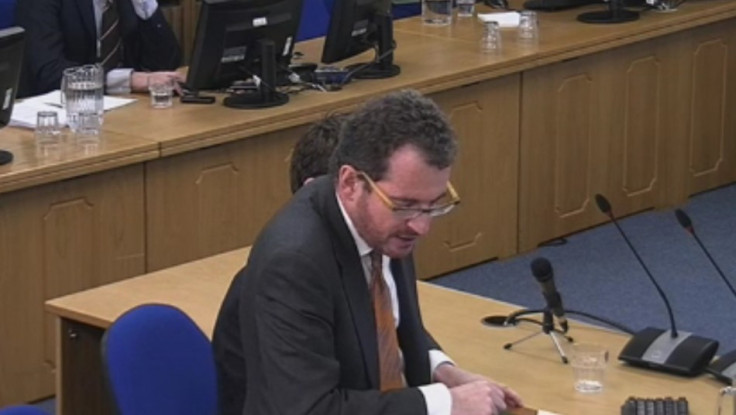
11:50: Conservative MP Zac Goldsmith has commented on Rothermere's evidence on Twitter.
"Rothermere says if one of his journalists knowingly lies, he would expect them to be fired. Evidently no one cares what he expects..." he tweeted.
11:46: Leveson is now launching the third module of the inquiry - focusing on the relationship between the press and politicians.
"Is there a risk that there is an inappropriate press influence?" he asks.
11:29: Rothermere has finished giving evidence. The inquiry gave a rare insight into the life of Rothermere, who rarely makes public appearances.
Throughout his appearance, Rothermere was keen to stress the distance between himself and the editorial content of his newspapers, although he did admit that politicians often see proprietors as a target for veiled lobbying.
It is these, often naturally opaque relationships, which Leveson will have a tricky task defining and thus restricting.
11:26: Rothermere said it is important for him to be an outsider when he meets politicians.
"Ultimately, when things are exposed you have to have a degree of aloofness and professionalism. This means it is sometimes hard to make friends and keep them. That is the cost of doing the job properly."
He added that he considered it "not particularly polite" to meet people privately and "bore them" talking about work.
Leveson added that "you might not be boring them".
11:22: Leveson asks whether the press has failed to regulate itself, as it took so long for the Guardian's story on phone hacking to take off.
"Who actually is watching what the press themselves are doing?" he asked. "It doesn't happen very often does it."
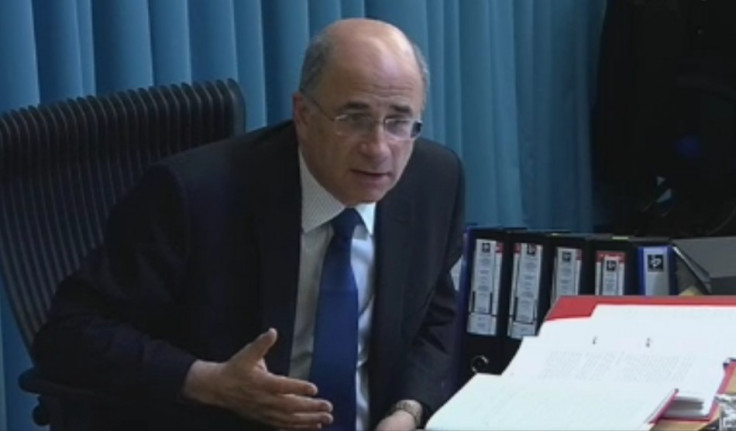
"Have [The press] failed in that regard?" he added.
When Rothermere replied that the Guardian's investigation was an example of self regulation, Leveson said: "Really, given that it took five years? Three years before the 09 article then some more in 2010 and 2011. They really did have to - this is not an advertisement for the Guardian - I am raising the issue."
11:14: Rothermere admits that the Mail's handling of the Madeleine McCann story was a "regrettable occurence" on a very big story.
He said that "The McCanns encouraged publicity for very good reasons. As there was, I believe, the problems of the jurisdication in Portugal creating briefings."
He said that "a number of allegations were made which we regret" which were immediately rectified.
"It's a regrettable occurence, but it is the nature sometimes of journalism to do that."
11:00: The discussion centres around former Tony Blair aide Jonathan Powell's book The New Machiavelli, which covered a spat between the Mail and Daily Express, as both papers attacked each other's owner.
Jay went on to ask whether Rothermere thought stories written about him were in the public interest, to which he answers "not in my opinion".
Lord Justice Leveson said: "The issue is that there's a risk that newspapers may use the power of the position and a public interest justification to have a go at, invade the privacy of, people for reasons which may be good to them but which don't really stand up."
Rotheremere answers "As long as we have a free press there's always the danger that people will abuse that power.
"Certainly, I do not try and do that. I'm respectful of my power and the power the newspaper has and I'm respectful of our readers.
"if I thought my editor in chief was doing that I would be very unhappy."
10:54 "It is also not my job to go around lobbying politicians on things like this," Rothermere tells the inquiry after saying that he cannot recall conversations with Jeremy Hunt over the bid.
"The only answer we would have been wanting was a fair review of the process," he adds.
10:51: Rothermere said he did not think he had ever met business secretary Vince Cable, who was moved away from the BsyB bid following "war on Murdoch" comments.
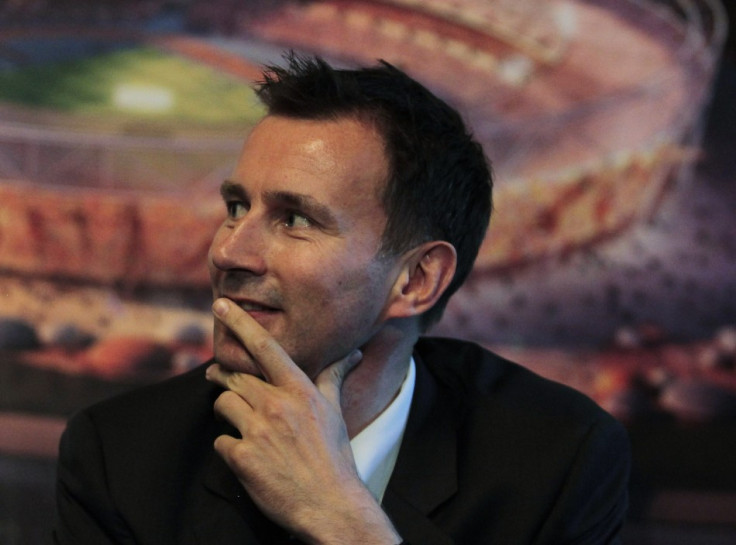
10:46: The focus has moved on to the BSyB bid, with Jay asking Rothermere whether he discussed the bid, which the Daily Mail & General Trust opposed, with culture secretary Jeremy Hunt during a weekend in Chequers on July 10, 2010.
Rothermere said he did not and added that his company initially did not expect the takeover to lead to a particularly material change, only realising the scale of the change that bid could bring following a report by analyst Claire Enders.
10:36: Jay asks why politicians persist in contacting Rothermere to control his papers when he will not take action.
Rothermere: "I don't know - I think that's a question for them."
He said that he communicates by emailing, claiming to have only sent two political text messages to Nick Clegg and David Cameron following the general election's televised debates, congratulating them on a "job well done"
10:25: Jay quotes News Corporation CEO Rupert Murdoch's comments when giving evidence to the inquiry.
He repeats Murdoch's comments that the Mail Online was a "great sort of gossip site", which "just steals" other content.
Rothermere replies: "Mail Online glories in the fact that it is not just a newspaper online, which I believe is one of the reasons it is so successful. It takes advantage of all that the online world offers.
"I think that our business is more about journalism not just newspapers and Rupert Murdoch is entitled to his view."
10:18: Jay asks Rothermere about his level of influence on the Mail's editorial policy.
He stresses that he does not want to influence his editors "through inference".
"I let my editors edit - however uncomfortable that may make me feel," he said.
Rothermere admits that politicians will often contact him when they are uncomfortable with a story, but adds that he would only pass their concerns on to editor Paul Dacre if there is an allegation that a story is untrue.
"I won't get involved in a matter of opinion," he adds.
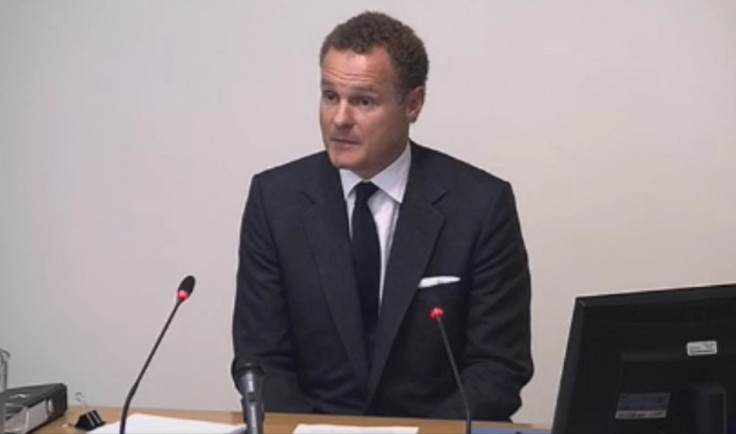
10:10: Robert Jay QC asks Rothermere if he agrees that the Mail Online, when compared to the newspaper, has more of a focus on "celebrity tittle tattle and pap".
Rothermere responds: "That's not everything that they read. Ninety percent of people also read news stories and not about celebrities - so it's a mixed bag".
10:08: Viscount Rothermere, proprietor of the Daily Mail, has started giving evidence.
10:00: Andy Coulson will certainly be expected to answer questions on recent Downing Street admissions that he might have attended secret meetinds on counter-terrorism and Afghanistan during his time working for Cameron.
The prime minister's vetting procedure for Coulson, who left his position as communications director in January 2011, has remained under scrutiny as the scale of phone hacking at the News of the World, as well as apparent efforts to cover it up, have been revealed.
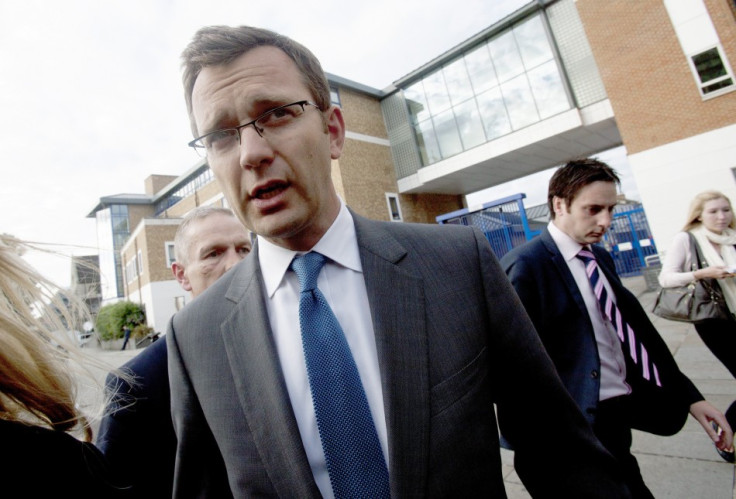
Former News of the World editor Andy Coulson will give evidence at the Leveson Inquiry into press ethics.
Coulson, who also worked as communications director for Prime Minister David Cameron, is expected to face strong questioning over his knowledge of phone hacking at the tabloid paper.
Sources within the paper have repeatedly claimed that Coulson was not only aware of hacking, but directly complicit in the practice, which he denies.
Although the Crown Prosecution Service dropped charges related to hacking against Coulson in December 2010 due to a lack of evidence, he was arrested again in July 2011 and questioned under caution.
IBTimes UK will be following the day's events with regular live updates.
© Copyright IBTimes 2025. All rights reserved.




















